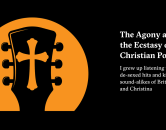Weekly Quiz: Messy Memos, TIFF’s Transformation, and the Suburbs’ Rightward Shift

1
2
const title = "Messy Memos, TIFF’s Transformation, and the Suburbs’ Rightward Shift"; const date = "September 13, 2025"; const data = [ { image: "https://walrus-assets.s3.amazonaws.com/img/WEB_PoilievresHallucinatoryPolitics_SEPT25.gif", title: "Poilievre’s Hallucinatory Politics", url: "https://thewalrus.ca/poilievres-hallucinatory-politics/", question: "Pierre Poilievre may have pulled the Conservatives even with the Liberals in one late-August poll, but underlying trends lean less impressive. According to data from Angus Reid, what share of Canadians said they would be “ashamed to call Poilievre prime minister”?", options: [ "One-third", "Half", "Two-thirds", "Three quarters", ], answer: "Half", correct: "As the summer closes, Canadians now say they are less likely to believe Poilievre is sincere or likable than they were in late 2023. A full half of Canadians polled by Angus Reid said that he is someone they’d be “ashamed to call prime minister.” And while Poilievre can still brag his party garnered the largest vote share in the history of the modern Conservative Party, expanding that tent may now be even more challenging. Among people who said they considered voting Conservative in the spring but didn’t, 70 percent said Poilievre didn’t articulate a clear plan for Canada and 59 percent said his campaign was too negative. Poilievre may be able to summon castles and fighter jets out of thin air, but it won’t be as easy to conjure up a Canada that wants him in charge.", incorrect: "As the summer closes, Canadians now say they are less likely to believe Poilievre is sincere or likable than they were in late 2023. A full half of Canadians polled by Angus Reid said that he is someone they’d be “ashamed to call prime minister.” And while Poilievre can still brag his party garnered the largest vote share in the history of the modern Conservative Party, expanding that tent may now be even more challenging. Among people who said they considered voting Conservative in the spring but didn’t, 70 percent said Poilievre didn’t articulate a clear plan for Canada and 59 percent said his campaign was too negative. Poilievre may be able to summon castles and fighter jets out of thin air, but it won’t be as easy to conjure up a Canada that wants him in charge.", }, { title: "Conservatives Painted the Suburbs Blue. Can the NDP Reclaim Ground?", url: "https://thewalrus.ca/conservatives-painted-the-suburbs-blue-can-the-ndp-reclaim-ground/", question: "Conservatives made major gains in Canada’s federal election, but the rightward turn of the suburbs is not new. In order for progressives to reclaim ground, writer Ricardo Tranjan suggests looking to grassroots organizers for inspiration. What Toronto collective does Tranjan cite as an example of the “bottom-up rebuilding” the left needs to invest in?", options: [ "The Bike Brigade", "Encampment Support Network", "Migrante Ontario", "Naujawan Support Network", ], answer: "Naujawan Support Network", correct: "Tranjan spoke with Simran Gill (formerly Dhunna) who, after years of organizing in downtown Toronto, shifted her focus to the suburbs just west of the city where she grew up. For the past four years, Gill has been involved with the Naujawan Support Network. Focused on Brampton and surrounding areas, the network brings together young people (“naujawan,” in Punjabi)—largely racialized international students and immigrants—against exploitative university and college practices and fees and abusive working conditions in industries like trucking, logistics, and construction. Gill’s message to progressives going into the suburbs? Don’t pack up your bags with your old ways; leave your jargon and assumptions downtown.", incorrect: "Tranjan spoke with Simran Gill (formerly Dhunna) who, after years of organizing in downtown Toronto, shifted her focus to the suburbs just west of the city where she grew up. For the past four years, Gill has been involved with the Naujawan Support Network. Focused on Brampton and surrounding areas, the network brings together young people (“naujawan,” in Punjabi)—largely racialized international students and immigrants—against exploitative university and college practices and fees and abusive working conditions in industries like trucking, logistics, and construction. Gill’s message to progressives going into the suburbs? Don’t pack up your bags with your old ways; leave your jargon and assumptions downtown.", }, { image: "https://walrus-assets.s3.amazonaws.com/img/WEB_BuildCanada_SEPT25.jpg", title: "Tech Elite Use Chatbots to Craft Their Vision for the Country", url: "https://thewalrus.ca/the-tech-elites-trying-to-build-canada-can-only-muster-ai-written-prose/", question: "Build Canada, a project spearheaded by tech elites, aims to influence government policy on a range of issues using—among other things—public memos to engender support for their cause. But as writer Drew Nelles discovered, the quality of said memos is … well … lacking. By Nelles’s count, how many times do their proposals repeat the word “innovation”?", options: [ "78", "92", "109", "126", ], answer: "109", correct: "Build Canada has admitted that their memos are produced with the help of generative artificial intelligence. “It’s an experiment in how we could be doing things,” co-founder Daniel Debow has said. Indeed, the memos bear all of a chatbot’s hallmarks: bulleted lists, bolded headers, circular logic, business-school jargon, pleonasms, repetition. The generalizations are sweeping, the ideas visionary—albeit within a circumscribed vocabulary. Build Canada’s proposals are frequently “bold” (twenty-one uses). The country is in “crisis” (thirty-five), but it would be “world-class” (twenty) if not for all those “outdated” (eighteen) regulations and policies, although the most pressing issues at hand are “investment” (195), “innovation” (109), and “productivity” (forty-two), rather than, say, climate change (three) or poverty (three).", incorrect: "Build Canada has admitted that their memos are produced with the help of generative artificial intelligence. “It’s an experiment in how we could be doing things,” co-founder Daniel Debow has said. Indeed, the memos bear all of a chatbot’s hallmarks: bulleted lists, bolded headers, circular logic, business-school jargon, pleonasms, repetition. The generalizations are sweeping, the ideas visionary—albeit within a circumscribed vocabulary. Build Canada’s proposals are frequently “bold” (twenty-one uses). The country is in “crisis” (thirty-five), but it would be “world-class” (twenty) if not for all those “outdated” (eighteen) regulations and policies, although the most pressing issues at hand are “investment” (195), “innovation” (109), and “productivity” (forty-two), rather than, say, climate change (three) or poverty (three).", }, { title: "How TIFF Became a Dumping Ground for Vanity Projects", url: "https://thewalrus.ca/how-tiff-became-a-dumping-ground-for-vanity-projects/", question: "The actor-turned-director fare at the Toronto International Film Festival (TIFF) has been a trend for the past few years. What is one theme shared by the actor-directed debut films screened at this year’s festival?", options: [ "Grief", "Transformation", "Corruption", "Survival", ], answer: "Transformation", correct: "TIFF’s 2025 programming slate had no shortage of actor-directed debut films, from Scarlett Johansson’s Eleanor the Great to Brian Cox’s Glenrothan and Maude Apatow’s Poetic License. If there were a theme that connects these films, writer Greta Rainbow believes it would be transformation. Characters take on new and surprising roles, adapting to a change in circumstances, even late in life, perhaps mirroring what their creators are attempting. These are portrait studies that rely on extremely close shots of faces, venerations of the art of acting more than the art of cinema. Take Eleanor the Great, for example, where we’re left with June Squibb’s tear ducts and lip quiver over and over and over again.", incorrect: "TIFF’s 2025 programming slate had no shortage of actor-directed debut films, from Scarlett Johansson’s Eleanor the Great to Brian Cox’s Glenrothan and Maude Apatow’s Poetic License. If there were a theme that connects these films, writer Greta Rainbow believes it would be transformation. Characters take on new and surprising roles, adapting to a change in circumstances, even late in life, perhaps mirroring what their creators are attempting. These are portrait studies that rely on extremely close shots of faces, venerations of the art of acting more than the art of cinema. Take Eleanor the Great, for example, where we’re left with June Squibb’s tear ducts and lip quiver over and over and over again.", }, ];
The post Weekly Quiz: Messy Memos, TIFF’s Transformation, and the Suburbs’ Rightward Shift first appeared on The Walrus.


Comments
Be the first to comment